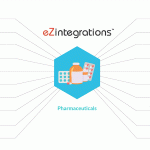The healthcare sector is a complicated and fast expanding field that plays a key role in the well-being of communities all over the world. However, the industry faces several challenges that can have an impact on patient care and outcomes. From growing healthcare expenditures to chronic illness management and information overload, these issues necessitate new solutions and a dedication to patient-centred care.
Challenges:
One of the most significant difficulties confronting the healthcare business today is the issue of escalating healthcare prices. As the population ages and chronic illness rates grow, healthcare costs have become a major issue for both individuals and governments. To solve this problem, healthcare organisations must focus on increasing efficiency and eliminating waste, as well as integrating innovative technology and procedures that can enhance patient outcomes.
Another significant issue confronting the healthcare business is a lack of patient participation. Despite developments in medical technology, many people continue to be disengaged from their own healthcare, resulting in lower adherence to treatment programmes and inferior outcomes. To overcome this issue, healthcare organisations must prioritise the development of new patient-centred care models that prioritise patient interaction and communication.
Aside from rising costs and a lack of patient engagement, healthcare regulatory changes are a significant challenge for the industry. Healthcare organisations must be able to react rapidly and guarantee compliance while still delivering high-quality treatment to patients as requirements change and evolve. This can be a tough balance to strike, but it is critical to the healthcare industry’s long-term success.
Implementing professional health technologies is another significant difficulty for the healthcare business. While new technologies like telemedicine, artificial intelligence, and machine learning have enormous potential for improving patient care and outcomes, they also pose significant implementation, training, and data security challenges. Healthcare organisations must be able to negotiate these hurdles to reap the full benefits of new health technologies.
Insurance and payment systems are two other important issues confronting the healthcare business. As insurance and payment models develop, healthcare organisations must be prepared to adapt to guarantee that patients receive the treatment they require. This can be especially difficult considering growing prices and limited resources, but it is critical to ensure that patients receive the treatment they require to be healthy.
Another major issue confronting the healthcare business is health information overload. With so much health information available to people, it may be difficult to determine what is correct and important. Healthcare organisations must aim to deliver accurate and clear health information to patients while also ensuring that healthcare workers can properly handle the massive volumes of health data that they must analyse daily.
Healthcare worker shortages are another important issue that the sector is dealing with. With an ageing population and an increased demand for healthcare services, there is a greater need for trained healthcare personnel. However, many healthcare organisations are having difficulty attracting and retaining the talent required to meet this demand, resulting in workforce shortages and decreased patient access to care.
Another major difficulty for the healthcare business is chronic illness management. With the prevalence of chronic diseases on the rise, healthcare organisations must discover efficient strategies to treat these ailments to improve patient outcomes and save costs. This may entail introducing new care models and treatment approaches, as well as offering patients with the tools and resources they require to manage their own health.
Lastly, ageing infrastructure is a big issue confronting the healthcare business. Many healthcare buildings are antiquated and in need of major repairs and upgrades, which may be costly and time-consuming. Addressing this problem will involve major investment and preparation, but it is critical to ensure that healthcare organisations can give patients with the high-quality treatment they demand.
To summarise, the healthcare business faces a wide range of difficulties that have important ramifications for patients, providers, and other stakeholders. The rising cost of healthcare services, a lack of patient engagement, healthcare regulatory changes, implementing advanced health technology, insurance and payment systems, health information overload, workforce shortages, chronic disease management, ageing infrastructure, and information and integrated health services are some of the key challenges that the industry must address.
Addressing these difficulties would need collaboration among healthcare organisations, governments, technological businesses, and other stakeholders. By integrating different data sources like EHR using FHIR standards, we can try to overcome these challenges. FHIR is a robust and expandable framework for healthcare data transmission that is designed to be easily integrated with other healthcare technology. This makes it an excellent choice for EHR systems since it allows for easy integration with other healthcare systems such as medical imaging systems, laboratory information systems, and others. Using FHIR, various EHR systems can link with other systems and exchange patient data in real time.






